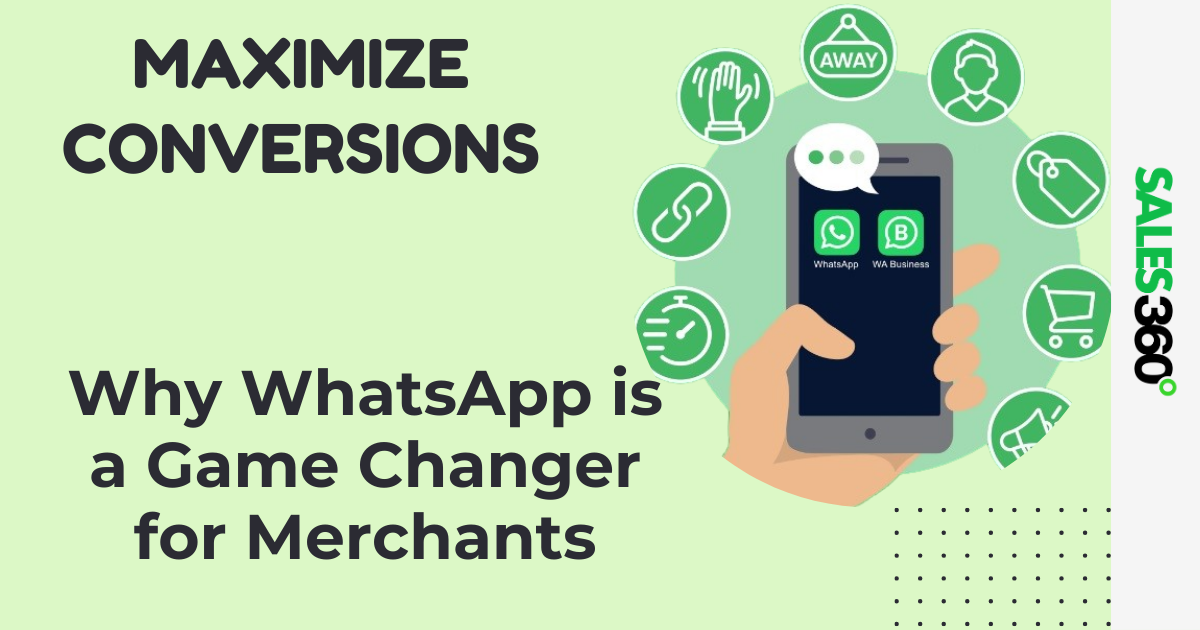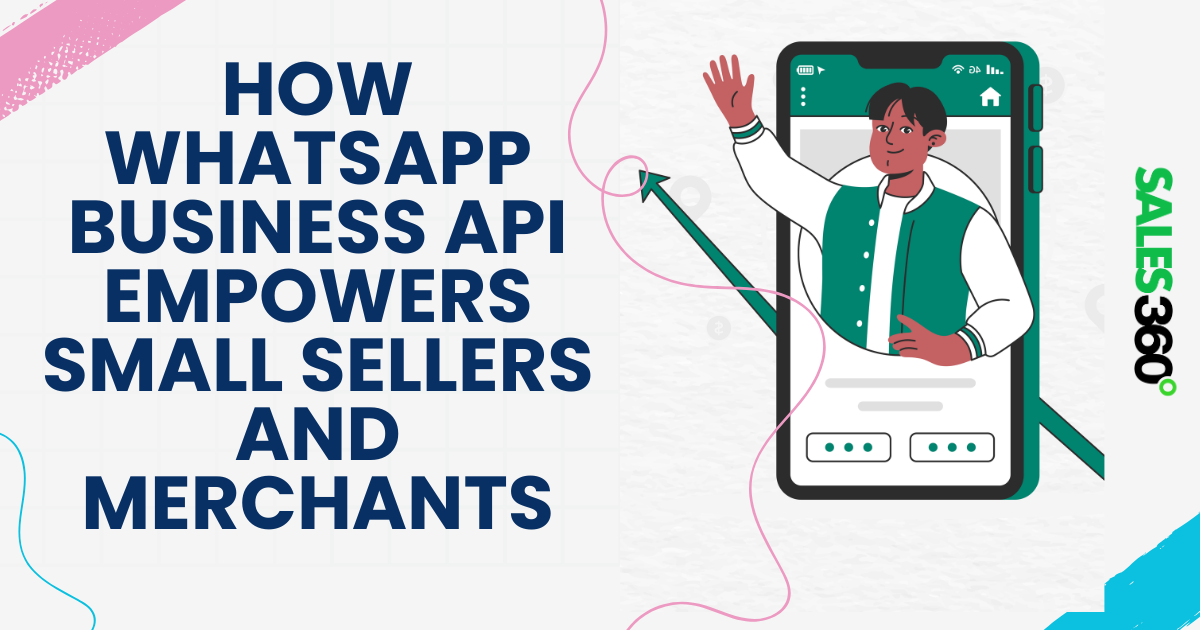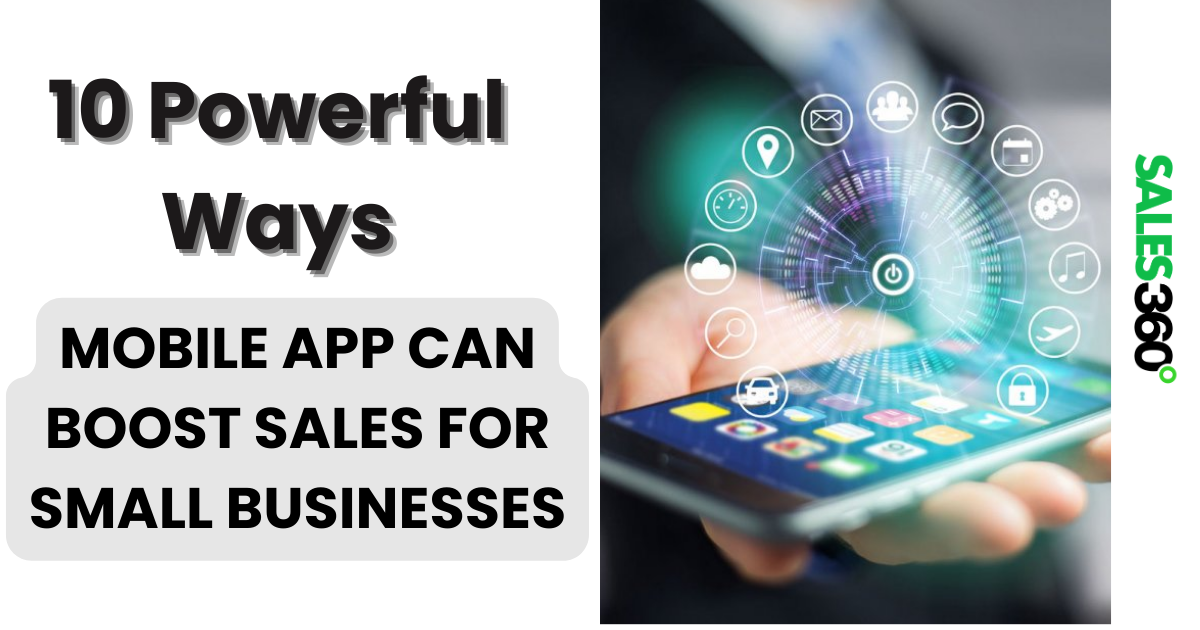
Why WhatsApp is a Game Changer for Merchant Conversion Rates
In today’s fast-paced, hyper-connected digital world, customer engagement is no longer just about sending emails or posting ads on social media. The game has changed, and businesses must adapt to stay ahead. As a merchant, you know that connecting with your customers is the key to driving conversions and building loyalty. But how do you cut through the noise in an overcrowded digital marketplace?
The answer lies in a platform that’s already deeply woven into the daily lives of billions of people: WhatsApp. With over 2 billion active users globally, WhatsApp is more than just a messaging app; it’s a powerful tool that can revolutionize the way you communicate with your customers—and ultimately, boost your conversion rates.
WhatsApp has redefined how businesses interact with their audience, offering a level of personalization and immediacy that emails and traditional ads simply can’t match. Whether it’s real-time customer support, personalized recommendations, or timely sales notifications, the ability to reach your customers directly through their mobile phones—right in their messaging inbox—puts you miles ahead of the competition.
Why WhatsApp Marketing Matters: Imagine being able to send out a personalized message about your latest product launch, directly to a customer who has previously shown interest, at the exact moment they’re most likely to buy. No more hoping they check their email, no more waiting for them to visit your website. WhatsApp enables instant, real-time interaction, allowing you to capitalize on the perfect moment to make a sale.
Moreover, WhatsApp’s Business API isn’t just about broadcasting messages. It’s a two-way communication channel where you can provide real-time customer service, address queries, and even close deals—all within a platform that your customers are already comfortable using. This kind of direct interaction builds trust and drives engagement, which in turn leads to higher conversion rates.
If you’re still relying on traditional marketing tactics and facing declining open rates, click-through rates, and overall customer engagement, it’s time to pivot. WhatsApp Business API offers merchants the opportunity to create highly personalized experiences, nurture relationships, and accelerate the sales cycle—all while meeting your customers where they are most active.
Understanding the Power of WhatsApp Campaigns in E-commerce
In the e-commerce world, where customer attention is fleeting and competition is fierce, merchants need every edge they can get. This is where WhatsApp Business stands out. Unlike email or social media marketing, WhatsApp offers a direct line of communication that feels intimate and personal—perfect for building trust and engagement with customers.
Why WhatsApp Business Features Matter
WhatsApp Business comes equipped with a range of features designed specifically to enhance your ability to communicate effectively with customers. Here’s why these features make WhatsApp campaigns so powerful for merchants:
- Two-Way Communication: Unlike social media, where engagement can feel one-sided, WhatsApp enables real-time conversations. Customers can ask questions, provide feedback, and even complete transactions, all within the app. This means you’re not just broadcasting messages; you’re fostering relationships.
- Instant Updates: Want to notify your customers about a flash sale, new product launch, or special promotion? With WhatsApp, you can send timely, personalized updates directly to their phones. Customers no longer have to scroll through emails or navigate through ads – they receive the information instantly and are more likely to act on it.
- Multimedia Support: WhatsApp isn’t just about text messages. You can share images, videos, documents, and even catalogs. This means merchants can showcase new products, send instructional videos, or even share personalized discounts with rich media that engages customers visually.
Personalized Communication Drives Higher Conversions
One of the core strengths of WhatsApp is its ability to deliver personalized communication. In today’s e-commerce landscape, customers expect more than generic marketing messages. They crave personalization and relevance, and this is exactly where WhatsApp shines.
By leveraging WhatsApp’s powerful API, you can send tailored messages based on customer behavior. For instance, you can:
- Send personalized product recommendations based on browsing or purchase history.
- Follow up on abandoned carts with a friendly reminder and perhaps a special discount.
- Offer real-time support to answer customer queries, reducing friction and increasing the likelihood of a purchase.
In an era where customer experience drives sales, the ability to personalize your outreach in such an intimate way is invaluable. Imagine your customer opening a message from your store with a discount code just for them, or receiving a thank you message after a purchase—this kind of experience makes customers feel valued and keeps them coming back.
Setting Up Your WhatsApp Business Account for Maximum Impact
Now that you understand the potential of WhatsApp, let’s focus on how to set it up correctly to maximize your e-commerce conversions.
WhatsApp Business API: A Merchant’s Secret Weapon
The WhatsApp Business API is specifically designed for medium to large businesses looking to streamline and scale their communication. With this tool, you can send notifications, set up automated replies, and integrate it with your existing CRM or customer service platforms.
Here’s a simple guide to setting up your WhatsApp Business API:
- Profile Optimization: Ensure your WhatsApp Business profile reflects your brand. Add a clear, professional profile image (such as your logo), a description of your business, contact information, and links to your website or store.
- Branding on WhatsApp: Your WhatsApp presence should feel like an extension of your brand. Use the same tone, style, and branding you use across your other channels to create a cohesive experience for customers.
- Customer Support Integration: WhatsApp can be a 24/7 customer support tool. By setting up automated responses and FAQs, you can handle common inquiries instantly, freeing up your support team to focus on more complex queries.
- Automation Tools: Leverage automation to streamline your workflow. With tools like chatbots and pre-built message templates, you can respond instantly to common customer actions—like inquiries about shipping, payment issues, or order tracking—without needing manual input.
These steps will set the stage for running effective campaigns that are both engaging and efficient.
Crafting Engaging Messages That Drive Conversions
Crafting the right message is critical to the success of your WhatsApp campaigns. The platform’s conversational nature means you need to get the tone, content, and timing just right to create the kind of engagement that drives conversions.
Here’s how to do it:
- Keep It Conversational: WhatsApp is an intimate, personal platform. Avoid corporate-speak and aim for a tone that feels friendly and approachable.
- Create a Sense of Urgency: Use limited-time offers, countdowns, or reminders about low stock levels to encourage customers to take immediate action.
- Include a Clear Call-to-Action (CTA): Whether it’s “Buy Now,” “Claim Your Discount,” or “Check Out New Arrivals,” your message should always include a strong, clear CTA to guide the customer towards the next step.
- Leverage Rich Media: Engage customers with eye-catching images or videos of your products, along with a compelling message that encourages them to click through and make a purchase.
By crafting the right message, you’re not just promoting your products—you’re nurturing your relationship with the customer in a way that feels personalized and meaningful.


